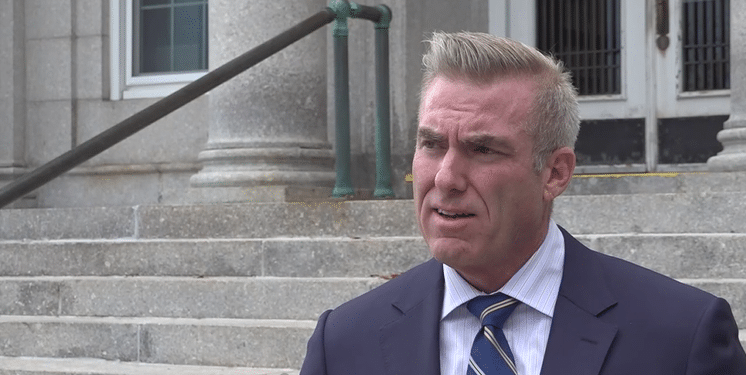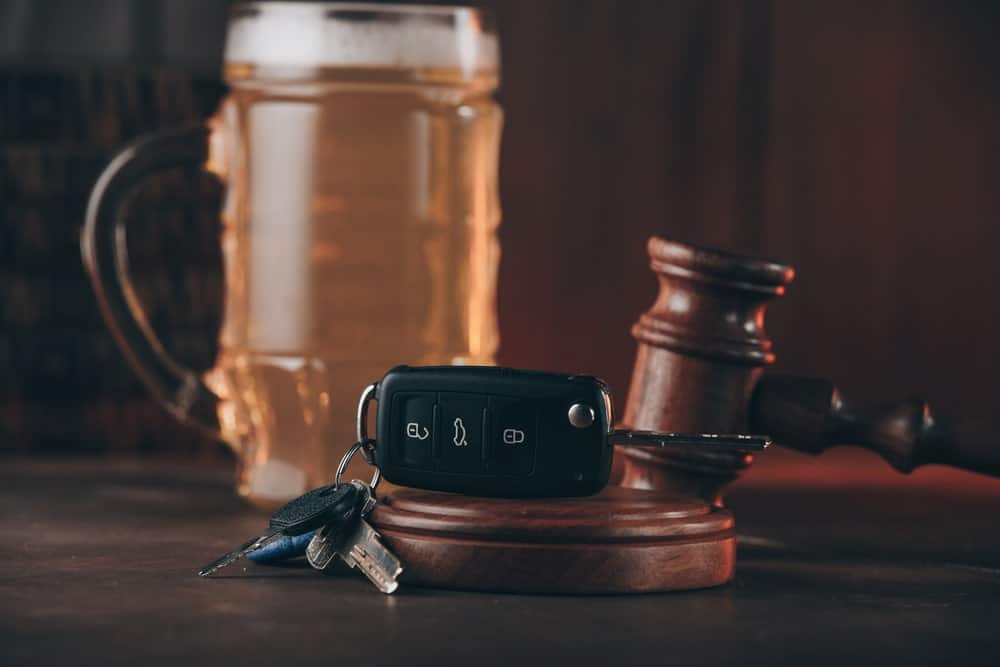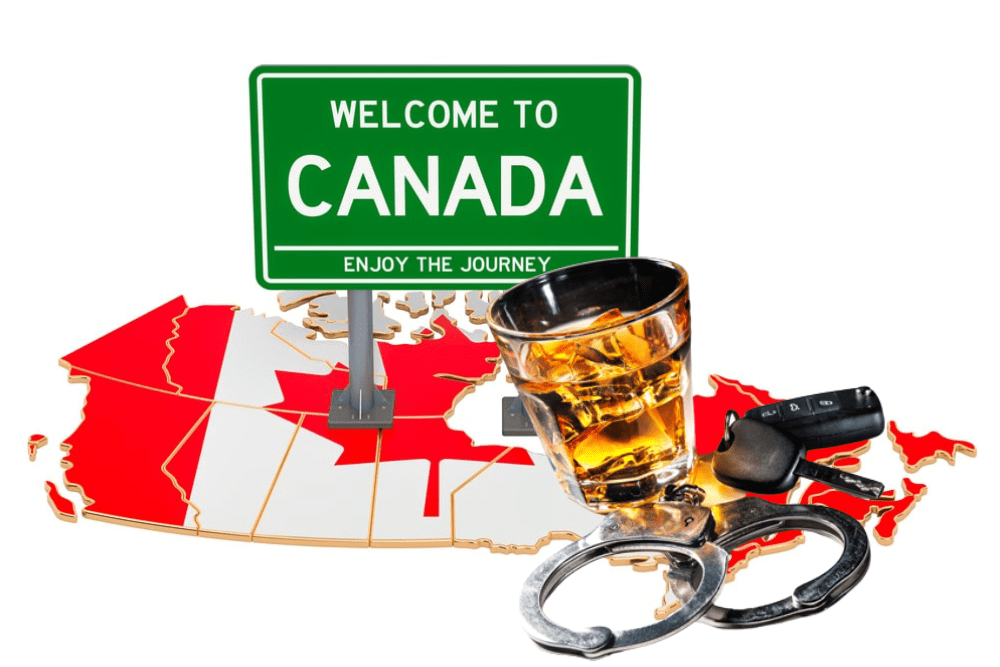Last Updated: February 18, 2025
Between 11 and 15 million Americans visit Canada each year but you’re unlikely to contribute to those numbers in the future if you have an OUI (or DUI) on your record.
The simple answer to whether you can travel to Canada with an OUI on your record is “no.” Canada takes drunk driving very seriously, and even misdemeanor offenses appearing on your criminal record will not simply be overlooked. Every traveler’s entire criminal record is visible to border officials at seaports, airports, and other border crossings in North America.
Visiting Canada with a DUI
Under Canadian DUI entry, a conviction for a criminal OUI in Maine (or a DUI / DWI from elsewhere in the U.S.) makes you an “inadmissible person” in Canada, i.e., a threat to public health and safety.
Americans with criminal convictions on their records are turned away daily at the border. With the recent changes to Canada’s impaired driving laws, even after 10 years have passed since a Maine OUI conviction, you may still be denied entry by Canadian border authorities.
Fortunately, there may be a way to cross the border legally, so that you can make that short hop to Montreal or Quebec with your friends. But you may need legal advice from a qualified attorney to do so successfully
Call 207-571-8146 or contact us online to schedule a consult with one of our highly skilled criminal defense & OUI lawyers, serving Southern Maine, today.
Table of Contents
Canada may block entry if you have a Maine OUI conviction
The Canada Border Services Agency (CBSA) determines who is eligible to enter the country and who is not. Obviously, it’s best to know before you book your flight and land in Toronto or head to the border for a trip to Montreal whether or not you’ll be allowed in.
The U.S. government has shared driver’s license/criminal court records with Canadian border officials for two decades. Travelers should assume that whichever way they try to enter Canada, immigration officers will be stationed at the entry point and driver’s license histories will be visible to them, including any OUI charge or conviction.
You are presumptively inadmissible to Canada with a single OUI and this will be enough to deny you entry at the border — unless you can show a valid temporary resident permit (more about this below).
Technically, if you have an arrest record for a crime for which you were never convicted or if you were acquitted, you should be deemed admissible to Canada. However, because it appears on your criminal record and border officials in Canada will view this information, they can bar entry based on this alone — and there will be little you can do about it at the time.
Even if there is a pending OUI charge on your record, you can be refused entry to the country. So, if you’ve been suspended by the Bureau of Motor Vehicles in Maine and not even convicted, Canada may treat you as persona non grata.
A deferred adjudication or a diversion for your OUI / DWI is also likely to be treated as a conviction by Canada and can result in you being barred from entry.
Can you be refused entry to Canada for a misdemeanor?
Canada does not use the term “misdemeanor,” but it is similar to their “summary” conviction (felonies are similar to indictments).
It may seem unfair to be barred from a country if you have only received a misdemeanor charge in Maine, but Canada takes all drunk driving offenses very seriously.
Accordingly, U.S. misdemeanor crimes like operating under the influence, driving under the influence, or driving while intoxicated are generally considered to be significantly more serious in Canada and will likely impede your entry to the country.
On the other side, some misdemeanor crimes in the U.S., such as solicitation, are not crimes in Canada and so are unlikely to impact your entry to the country.
What if I have a pardon or expungement for my OUI?
Unfortunately, Canada and the U.S. do not normally recognize each other’s pardon and expungement policies.
If your Maine OUI has been expunged in the U.S., it will not erase the conviction in the eyes of Canadian immigration officials.
Call 207-571-8146 or contact us online to schedule a consult with one of our highly skilled criminal defense & OUI lawyers, serving Southern Maine, today.
Can you enter Canada legally with an OUI?
To enter Canada legally with an OUI or other criminal offense on your record, Americans can apply for a temporary resident permit.
This is a time-consuming process that can take up to four months to complete but if successful, it will enable you to overcome Canadian criminal inadmissibility for up to three years.
Another possible way to enter Canada is by being granted “criminal rehabilitation” status, which will overcome the criminal inadmissibility objection.
If someone can demonstrate criminal rehabilitation, the government can exercise discretion and allow that person to become admissible to Canada. This may be possible in the following circumstances, according to Immigration Canada:
- For offenses that Canadian Courts could have punished by 10 years in prison or less: you are deemed rehabilitated 10 years after the sentence is finished but can apply for rehabilitation after five years.
- For offenses that Canadian Courts could have punished by 10 years or more: you are never automatically deemed rehabilitated but can apply five years after the sentence is finished.
- For offenses that Canadian Courts would have treated as “summary convictions” (i.e., similar to misdemeanors punishable by six months in jail): you are deemed rehabilitated after five years.
Get legal assistance with an OUI or entry to Canada
Being barred entry to Canada is just the start of your problems if you’re convicted of an OUI. Simply accepting the charge if you made an honest mistake can be costly for your future in other ways too.
It’s important to challenge OUI charges and try to clear your name. If that’s not possible, the consequences for the future must be mitigated.
If you have any concerns about an OUI charge and its effect on your admission to Canada, talk it through with a lawyer at the Maine Criminal Defense Group at 207-571-8146.
Call 207-571-8146 or contact us online to schedule a consult with one of our highly skilled criminal defense & OUI lawyers, serving Southern Maine, today.
OUI Blog Articles

OUI cases in Maine usually start when a law enforcement officer pulls over a vehicle. From that point, many things can happen but if the officer even has a slight[...]

January 11th, 2025, in Skowhegan, Maine, a Maine Department of Transportation plow truck sustained a head-on collision caused by a drunk driver on Route 2, as reported by law enforcement.[...]

The tragic events of a fatal car crash in 2023 that claimed the lives of four young people have finally reached a pivotal legal outcome. Noelle Tavares, a former Maine[...]

In most states, there are many different places that the average person can take a driving course to satisfy court requirements as related to an DUI conviction. However, in the[...]

Defending against OUI offenses in Southern Maine Anyone charged with a 2nd OUI in Maine should expect little leniency from the criminal justice system. This makes it even more important[...]

Defending against OUI Refusals in Southern Maine Did you know that it is a criminal offense to refuse to submit to a chemical test if lawfully requested to do so[...]

Reducing an OUI charge in Maine OUI charges are handled severely in Maine. For many people, a drunk-driving charge is their first time dealing with the criminal justice system and,[...]

Alcohol laws of Maine While you should be aware of the strict OUI laws in Maine, it’s also important to know about other ways you can face a traffic infraction[...]

Defending against OUI offenses in Southern Maine A first OUI in Maine can potentially have long-term consequences, but with the right legal representation, alleged offenders can escape the harshest penalties.[...]

If you blow under .08 in a DUI breath test in Maine, it may be jumping the gun to breathe a huge sigh of relief. You may not be “free[...]


